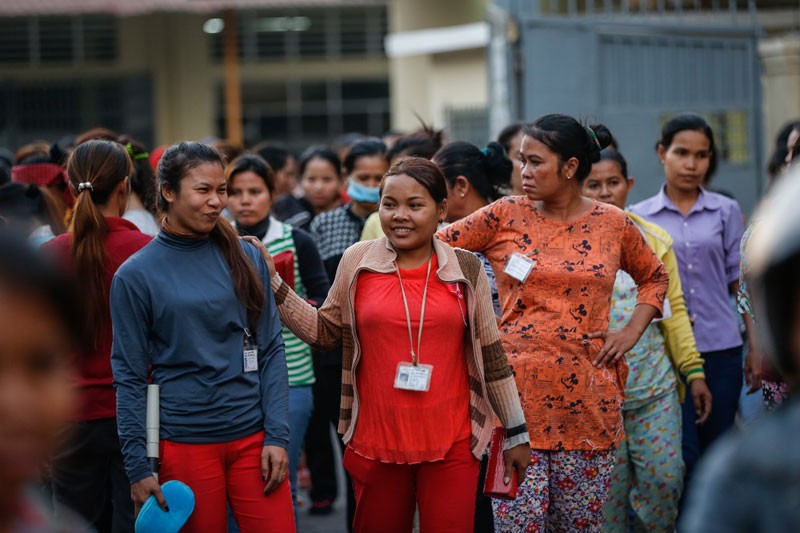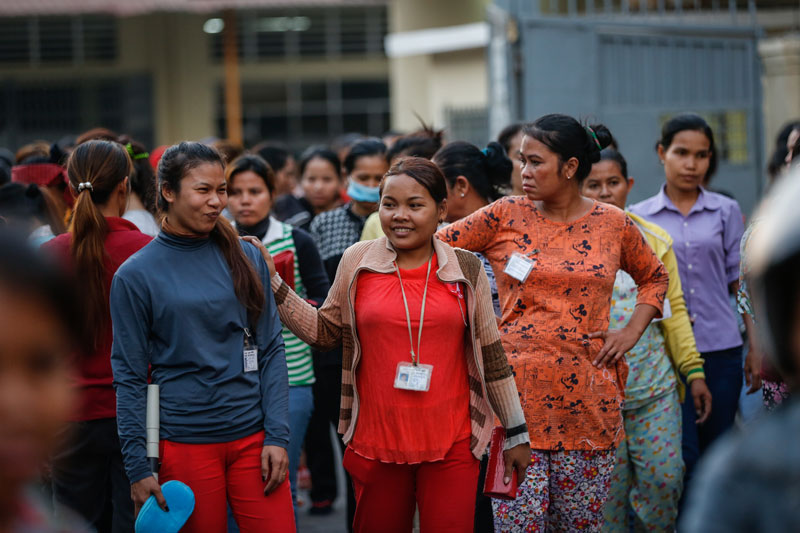Despite their overwhelmingly female workforce, garment factories in Kompong Speu province fail to adequately address the maternal health and child-care needs of their staff, according to new study set to be released by the French NGO Enfants and Developpment.
The report, a summary of which was distributed during an event on Friday, is based on interviews with 440 female garment workers at eight factories in the province, all between the ages of 15 and 49. It states that women working in factories have particular difficulty accessing adequate medical care during and after their pregnancies.

Under the Labor Law, any workplace with more than 50 employees is required to provide an on-site health care facility. But although the law includes stipulations about the size and cleanliness of such facilities, it does not specify what kind of care they must provide.
Two of the factories surveyed for the upcoming report do not have health centers, and none provides reproductive or maternal services.
“There is clearly some gaps in terms of labor law, especially on the services to be provided (beyond infrastructure & staff), and not only for infirmaries but also nursery and day care,” said Estelle Roesch, regional coordinator for Enfants and Developpment, in an email.
Both managers and laborers interviewed for the study cited child-care concerns as a major factor in workplace turnover.
“Day-care facilities in factories are not functional, also [the] majority of the factories have a space, but no service (staff or material),” the report says.
Ros Sopheap, founder of the NGO Gender and Development Cambodia, said a lack of childcare facilities for female workers had the potential to hinder economic growth.
“Old mothers raise the children based on 50 years ago,” she said. “A mobile society needs something different from 50 years ago. This is part of modern development.”
However, Ken Loo, secretary-general of the Garment Manufacturers Association in Cambodia, said mothers were still resistant to taking their children to work.
“Factories would set up the child-care centers if there were users. However, the situation we are facing is the workers prefer a stipend,” he said.




